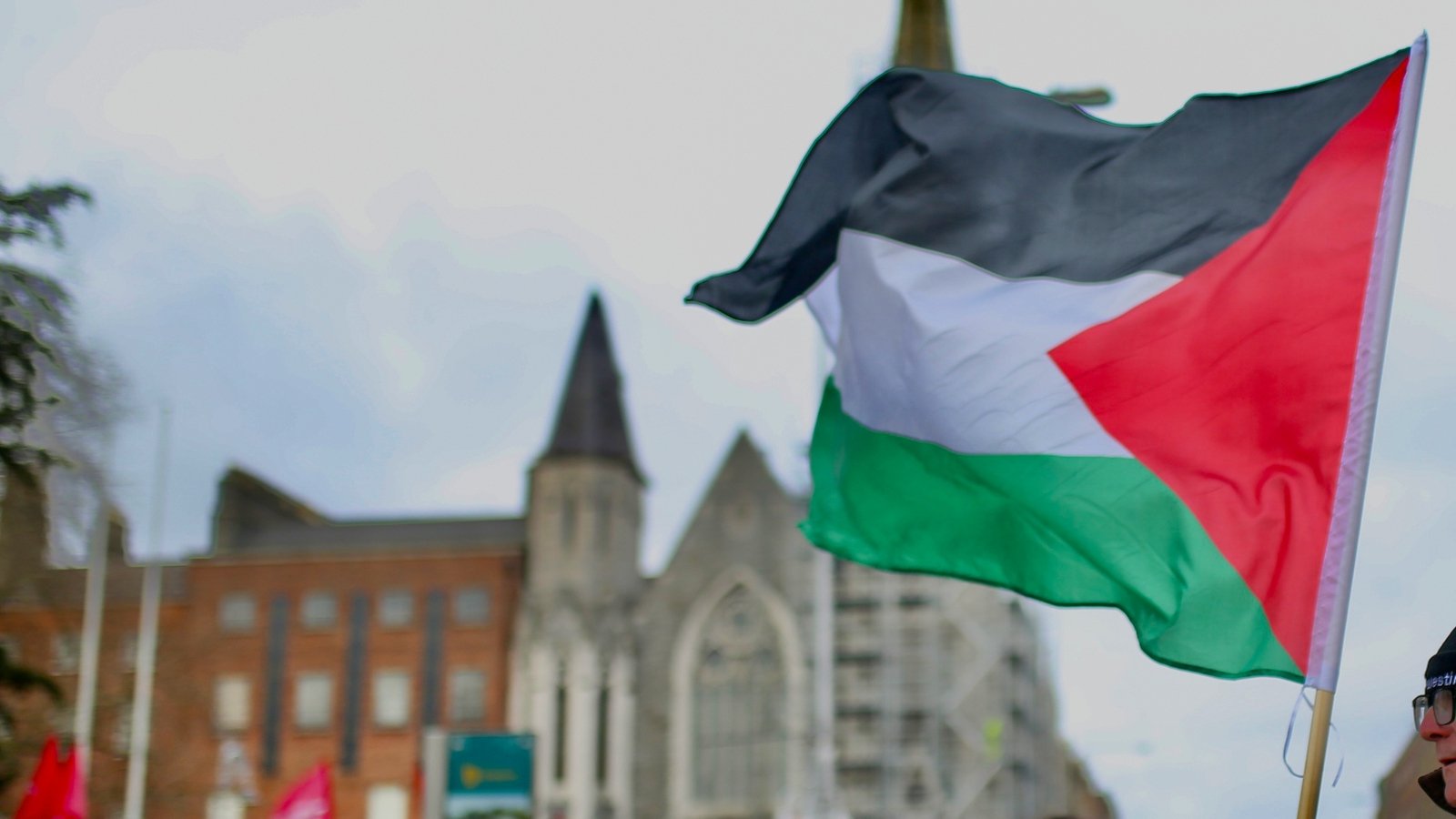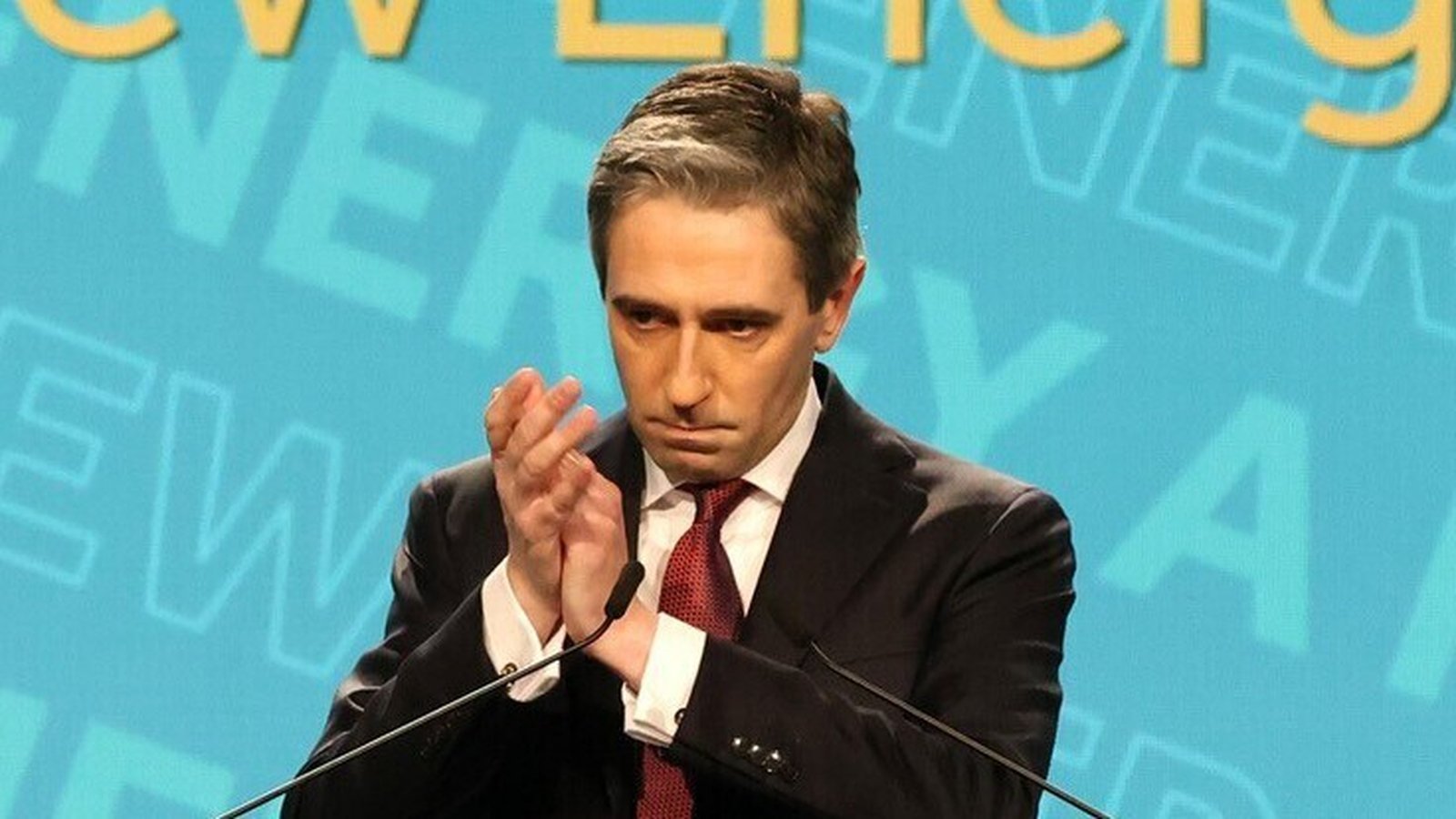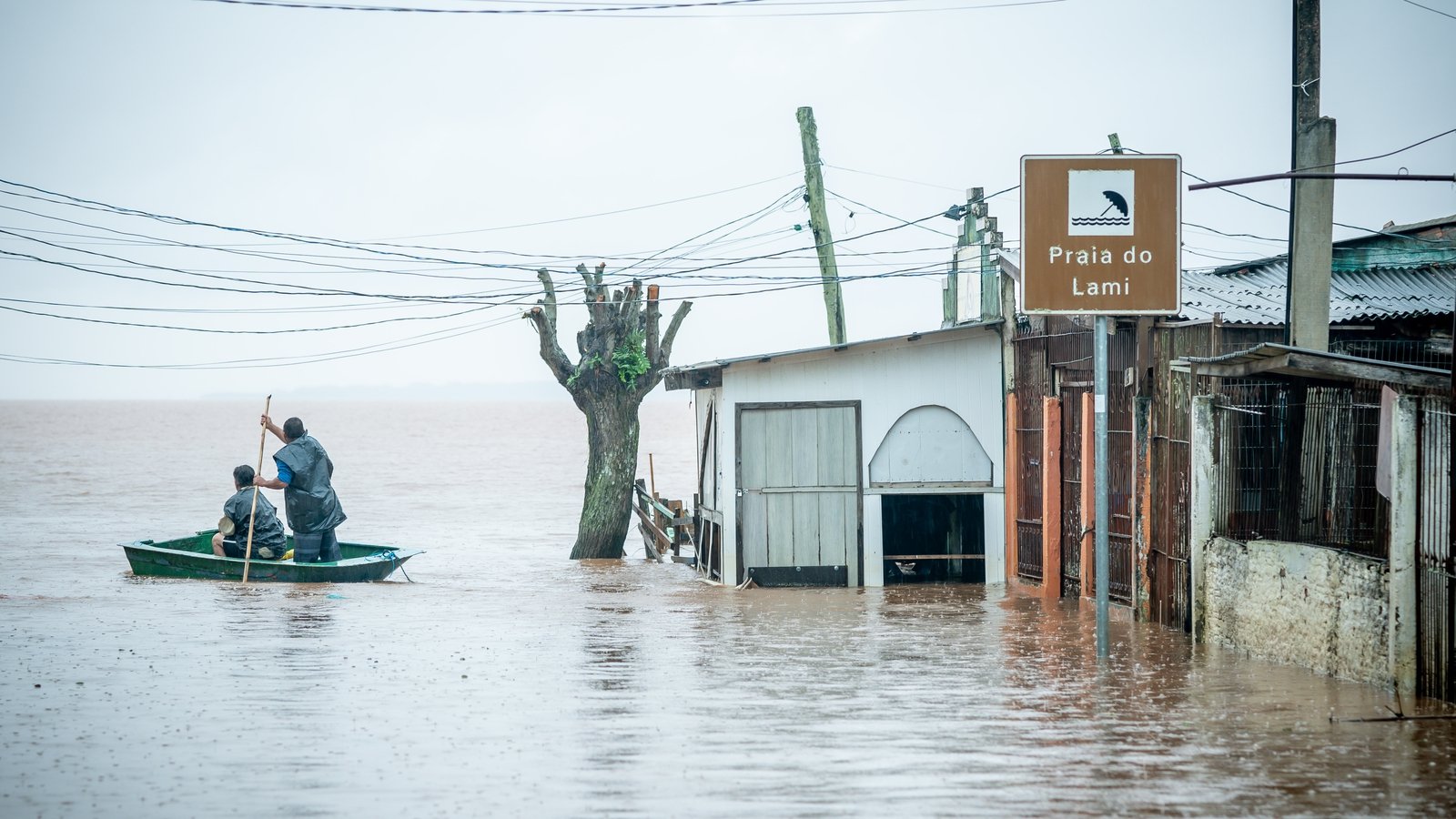Why a group of Russian soldiers’ wives are protesting
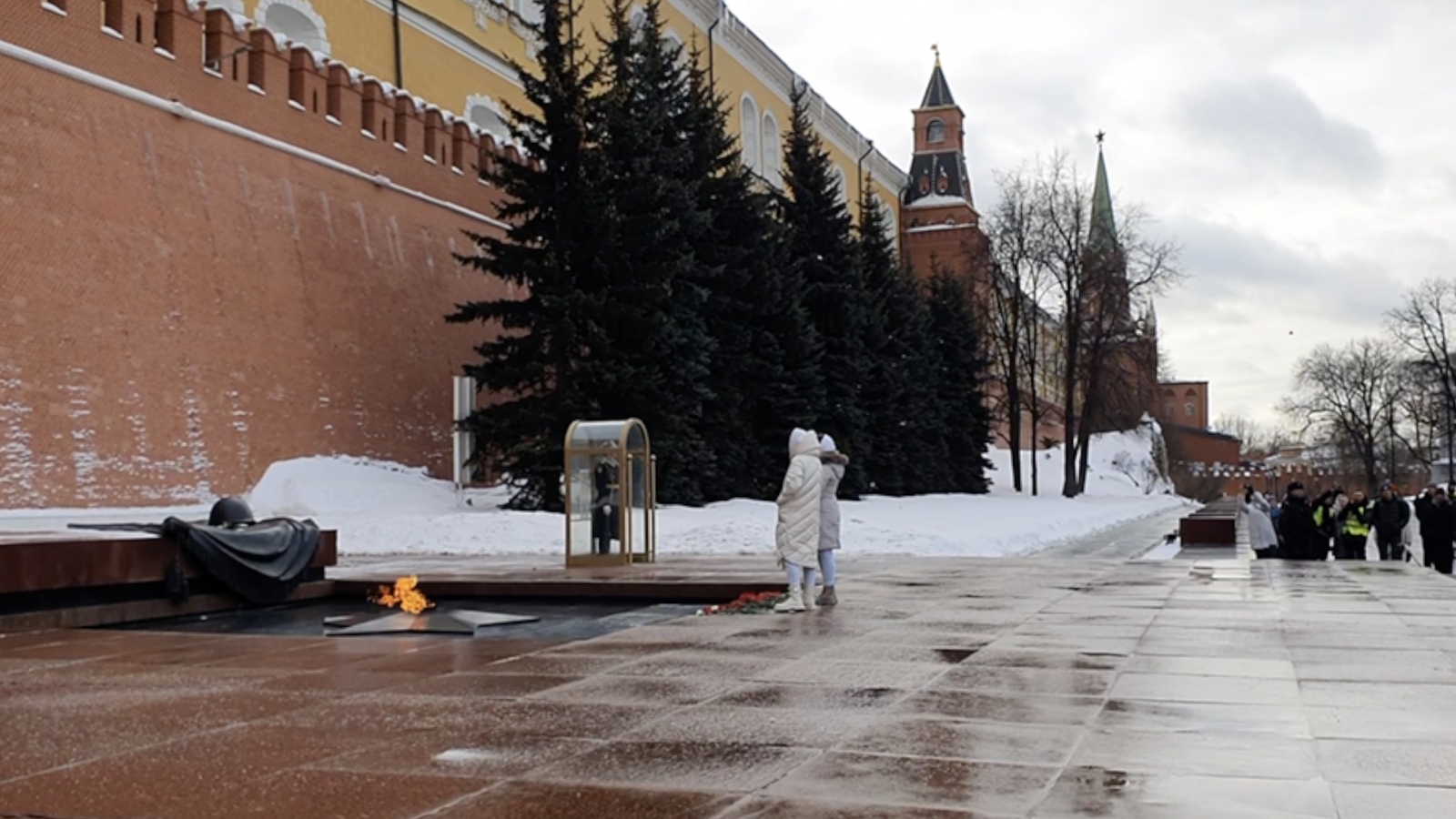
Maria Andreeva is a 34-year-old paediatrician and mother of a two-year-old boy who lives in Moscow.
Her husband, an army medic, was mobilised by October 2022, one month after the Kremlin’s mass mobilisation of 300,000 army reservists.
He was sent to the front in Ukraine in January 2023 and has been there since.
Speaking to RTÉ News, Ms Andreeva said that her husband sees “an endless stream” of wounded.
“This huge amount of wounded and what he constantly sees there is devastating for his psyche,” she said.
In recent weeks, Ms Andreeva has become the main spokesperson for a group of soldiers’ wives called ‘The Way Home’ (Put Domoy).
The women want a limit of one year to be placed on military service and for their husbands, now fighting Russia’s war in Ukraine for more than one year, to be allowed to return home.
Currently, Russia’s ministry of defence places no time limit on the amount of time a mobilised army reservist can serve.
Each Saturday since late December, Ms Andreeva and a few dozen other women whose husbands are also stationed in Russian-occupied Ukraine, have gathered in Moscow’s Red Square to lay red carnations at the Tomb of the Unknown Soldier.
It is a rare and brave display of public dissent in today’s Russia.
Spreading what the Kremlin deems to be “false information” about the war in Ukraine or about Russia’s armed forces carries a prison term of up to 15 years.
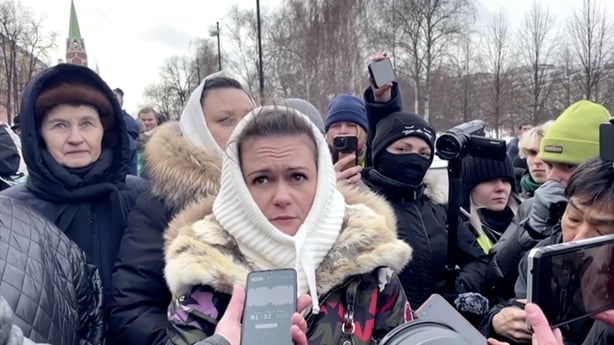
“Many women are afraid to join public actions out of concerns for their husbands and sons,” Ms Andreeva told RTÉ News.
“Many understand that taking it to the street is the only way. Many are ready for more active actions so our number will grow.”
The group’s Telegram channel now has more than 30,000 members.
Ms Andreeva said that members write 200 letters a day to each politician in Russia’s parliament, the Duma. There are 450 members of the Duma.
“We can write so many letters of request to the Duma that its operations would be paralysed,” she said.
Kristina, a 26-year-old from Samarskaya oblast, whose husband has been fighting in Ukraine since January 2023, made the 15-hour journey from her region to attend the group’s protest in Moscow the weekend before last.
She had heard about the group’s actions on its Telegram channel.
She told RTÉ News that reservists, like her husband, who were called up to fight are “like hostages because of the mobilisation decree”.
Kristina, who did not wish to give her surname, said that in her area few people were happy about what is happening in Ukraine.
“Of course there are people who support the special military operation and justify it. But now they have a different attitude because the conflict is dragging on and people are tense.”
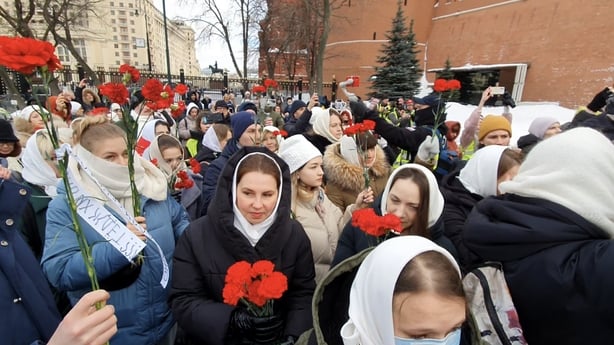
‘The Way Home’ group has written to all candidates who are standing in Russia’s presidential election, to be held from 15 to 17 March, and requested meetings to discuss their demands.
Only the independent, anti-war candidate Boris Nadezhdin replied and met with the group.
But Russia’s Central Election Committee last week barred Mr Nadezhdin from standing in the presidential election. It argued that 15% of the signatures collected by his campaign team, in order to stand as a candidate, were not valid.
Surprisingly, authorities in Moscow have allowed the women’s silent protest to take place each week.
“They do not arrest us only due to a simple reason that, according to their own words, our men are performing their duty,” said one protester who gave her name as Antonina from Yaroslavl, a city 250km north of Moscow.
“We do not want coffins delivered to our homes. We do not want children to grow up without their fathers. We do not want our sons to die there,” said Antonina, who said her husband is currently in Ukraine.
However, more than 20 journalists have been detained by police in Moscow over the past two weekends for covering the protest.
There were also reports on Telegram channels of men with cameras following the women after the most recent protest on Saturday.
Russia state media, a propagandist tool of the Kremlin which promotes the invasion of Ukraine, has not featured news of the protests.
During the Chechen wars of the 1990s, the wives and mothers of conscripted Russian soldiers became a powerful anti-war movement.
But displays of publicly criticising the Kremlin’s current war are rare.
‘The Way Home’ group is not openly calling for an end to the war, which may explain why Russian authorities have tolerated their weekly gatherings.
“Arresting women, in large numbers in Russia would resonate quite badly in society,” said Maria Domanska, a senior Russia analyst at Warsaw’s Centre for Eastern Studies.
“As long as the women are not demonstrating against Putin and the state as such, they just don’t see it as a necessity to react in a harsher way. That could backfire,” she told RTÉ News.
Ms Domanska said that the wives of Russian soldiers who have been killed in Ukraine are often offered large sums of compensation.
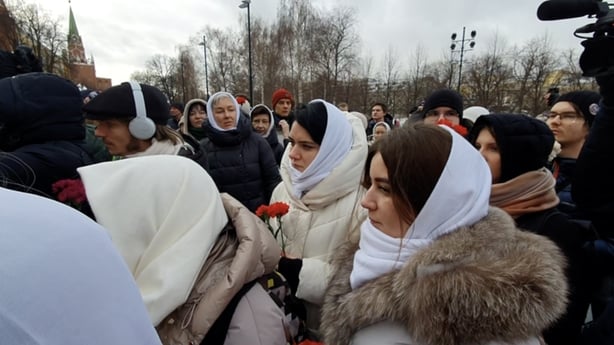
Given Russia’s vast size and population of more than 140 million people, the scale of the protests by the wives group remains very small.
Nonetheless, the group’s open opposition towards the state’s mobilisation policy is a sensitive issue for the Kremlin and Russian President Vladimir Putin who is seeking a fifth term as president in next month’s election.
Russia’s ministry of defence has informed ‘The Way Home’ group that only a decree from Mr Putin, or an end to what it calls the ‘Special Military Operation’ in Ukraine will bring about a change in the current terms of service for mobilised military personnel.
In November 2022, two months after the mass mobilisation, Mr Putin met a number of handpicked mothers of Russian soldiers who had died in Ukraine at his residence outside Moscow.
That meeting took place symbolically on Russian Mother’s Day and Mr Putin told the mothers that he and rest of Russia’s leadership “share your pain”.
However, Mr Putin did not meet members of Russia’s Council of Wives and Mothers, which was established after the mass mobilisation of reservists in September 2022.
In May 2023, Russian authorities declared the group and its founder Olga Tsukanova to be “foreign agents”, a label which stigmatised the association’s work in Russia and forced it to close.
Ms Andreeva is not deterred.
“If we are forbidden to do one thing, we think what else can be done,” she said.
In fact, ‘The Way Home’ has lent its support to a campaign called ‘Action 12’, which is encouraging voters to cast their ballots in person, at 12 noon, on the final day of the presidential election to make vote rigging more difficult.
A US intelligence report last December estimated that Russia had lost 315,000 dead or wounded troops since the start of the war. The Kremlin has said Western estimates of Russian war casualties are exaggerated.
A joint research project by the BBC’s Russian Service and Mediazone, an independent Russian media service, identified 42,284 Russian soldiers who had been killed during the first 18 months of the war.
Despite the staggering loss of life, 68% of Russians believe the ‘Special Military Operation’ has so far been successful, according to the latest polling from Levada Centre, a Russian research company.
“People in Russia understand quite well, that even if they are anti-war, or anti-Putin or anti-regime, that protest is an extremely dangerous strategy, with huge costs,” said Ms Domanska.
“This protest is not dangerous so far for the Kremlin.”
“Once it becomes, really on a mass scale, or once it is perceived as dangerous, I think that the Kremlin will undertake some harsher measures to suppress it,” she added.

